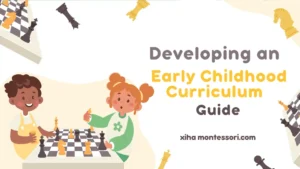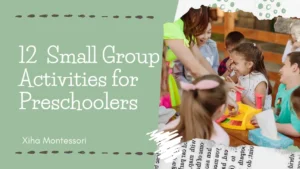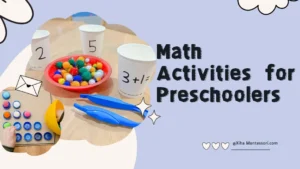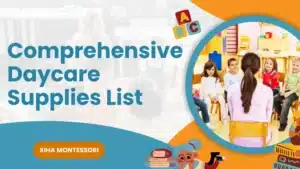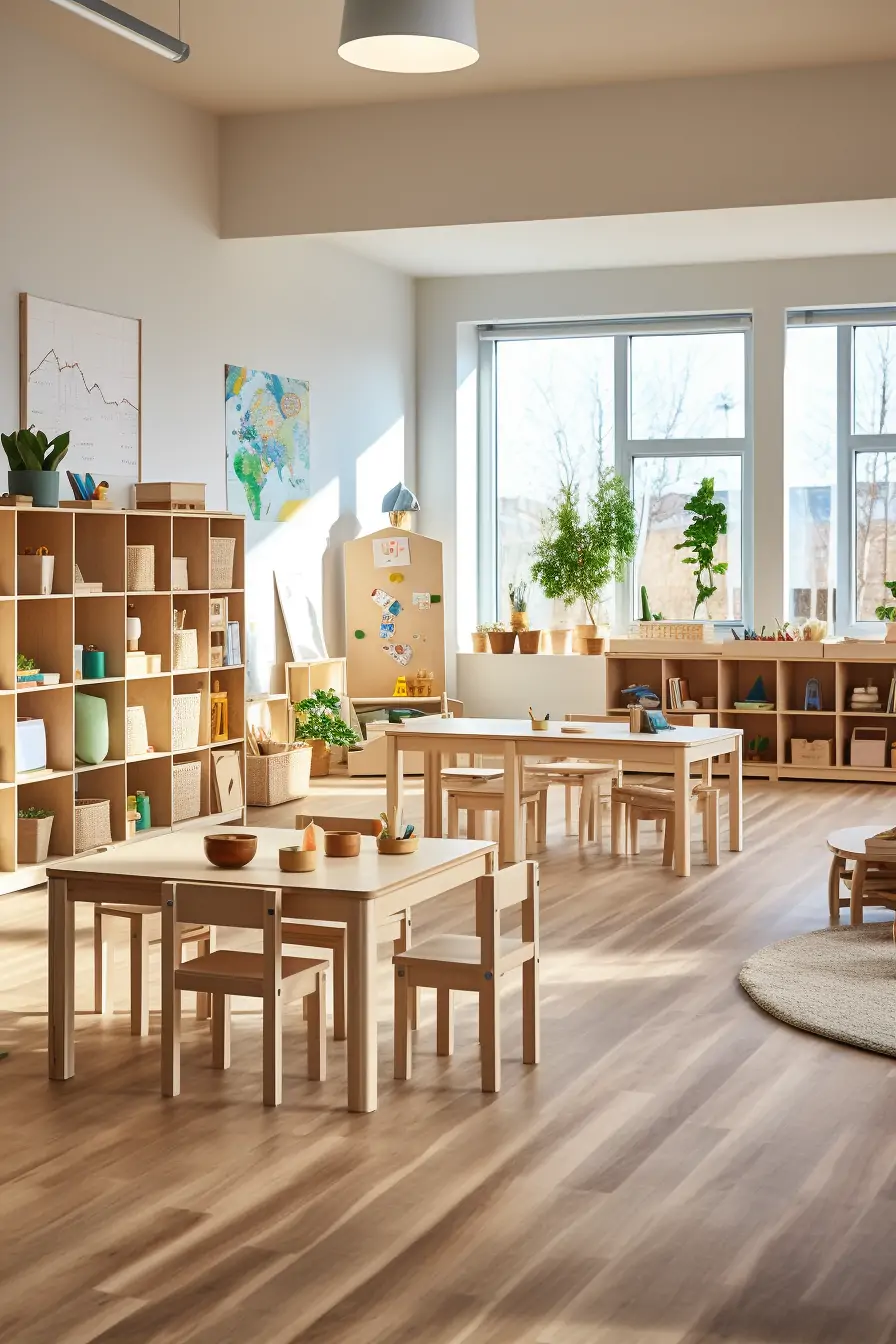In the realm of early childhood education, the emphasis on preschool outdoor play has never been more important. Engaging in outdoor activities is not just a way for children to burn off energy; it’s a critical component of their development. These activities foster physical health, encourage social interaction, enhance cognitive abilities, and connect children with nature.
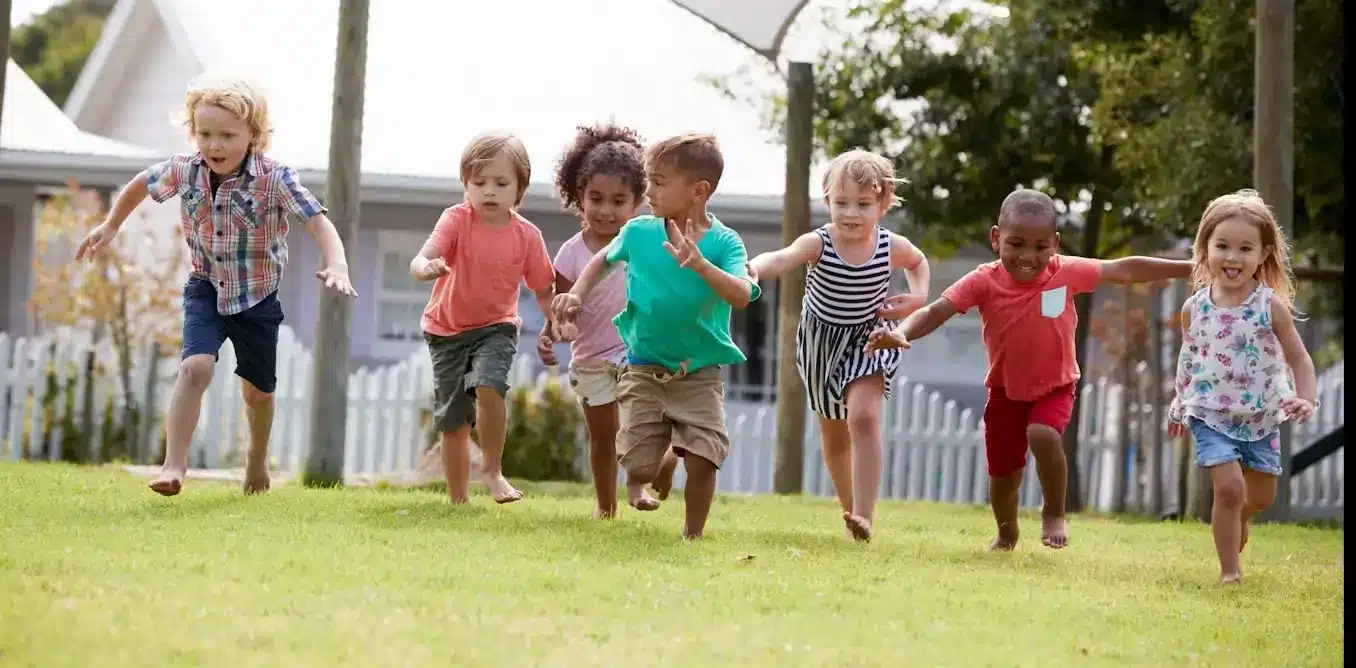
Preschool outdoor play is about recognizing how essential activities are in shaping a child’s physical, social, emotional, and cognitive growth. From running and jumping to exploring nature, these activities offer diverse experiences that are critical for early childhood development. They not only promote physical health but also foster problem-solving skills, creativity, social interaction, and a deeper connection with the environment.
This realization prompts us to explore further and identify specific activities that can enrich a preschooler’s learning journey.
Why Prioritize Outdoor Play for Preschoolers?
Outdoor play is an integral part of childhood that goes beyond mere physical activity. It’s a gateway to exploring the world, learning new skills, and building social connections. But what makes outdoor play so crucial for preschoolers?
- How does outdoor play contribute to physical health?
- Can outdoor activities foster a better environmental connection?
- What role does play have in developing social skills?
- How do outdoor activities support emotional resilience?
- Are there cognitive advantages to playing outside?
- What safety measures should be in place for outdoor play?
Addressing these questions helps underline the multifaceted benefits of outdoor play and its significance in early childhood education.
What Are the 20 Essential Preschool Outdoor Play Activities?
Outdoor play is an indispensable part of preschool education, blending fun with fundamental learning experiences. These activities not only support physical development but also enhance cognitive skills, foster social interactions, and encourage a connection with nature. Here are twenty essential outdoor play activities that every preschooler should experience:
- Nature Walks
- Materials: Magnifying glass, collection bags, nature checklist.
- Exploring the outdoors through nature walks is a fantastic way to spark curiosity. Preschoolers can use magnifying glasses to examine plants, insects, and rocks, fostering a deep appreciation for the natural world.
- Sandbox Creations
- Materials: Sandbox, sand toys, buckets, shovels, molds.
- The sandbox is a classic setting for sensory play. Children can dig, build, and sculpt, which enhances their fine motor skills and promotes imaginative play.
- Water Play Stations
- Materials: Water tables, cups, pitchers, water wheels, small toys.
- Water play stations offer endless opportunities for exploration and learning, from experimenting with floating and sinking to observing water movement.
- Obstacle Courses
- Materials: Cones, hoops, tunnels, balance beams.
- Setting up obstacle courses challenges preschoolers physically and mentally, encouraging them to think on their feet and develop their motor skills.

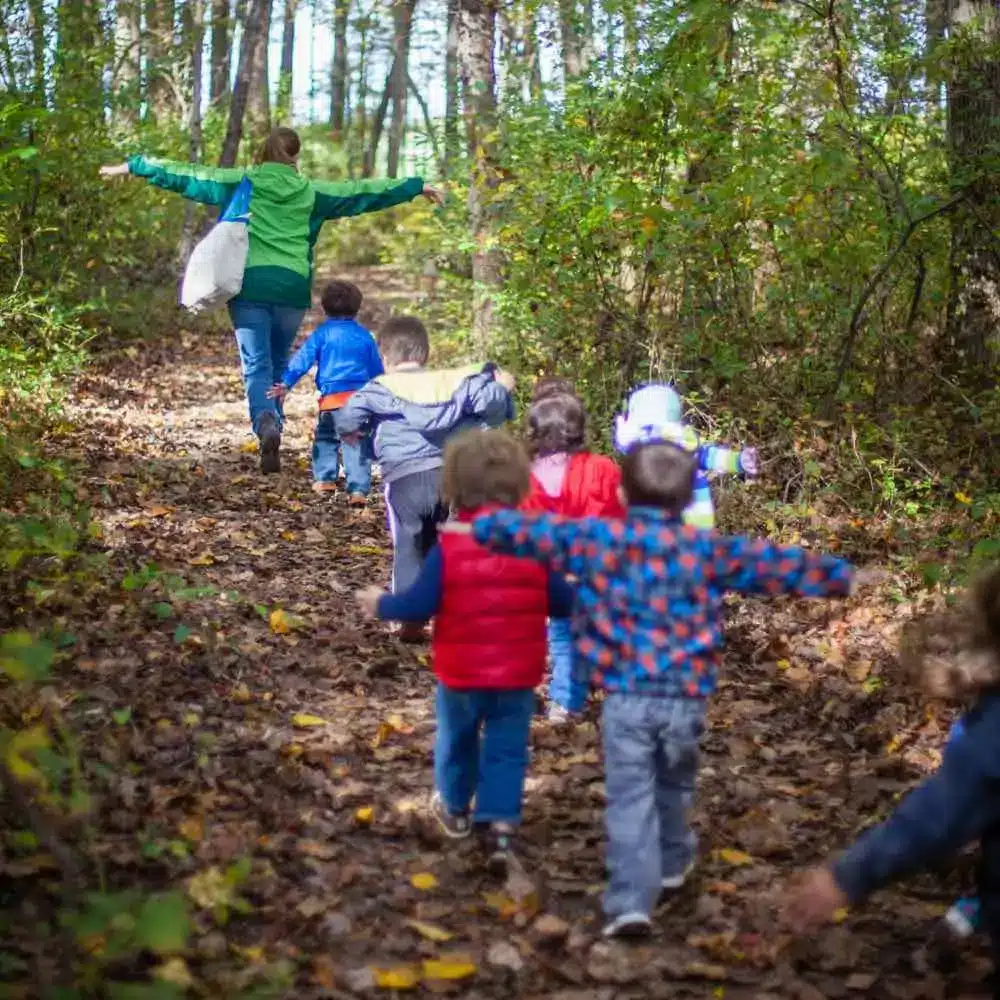
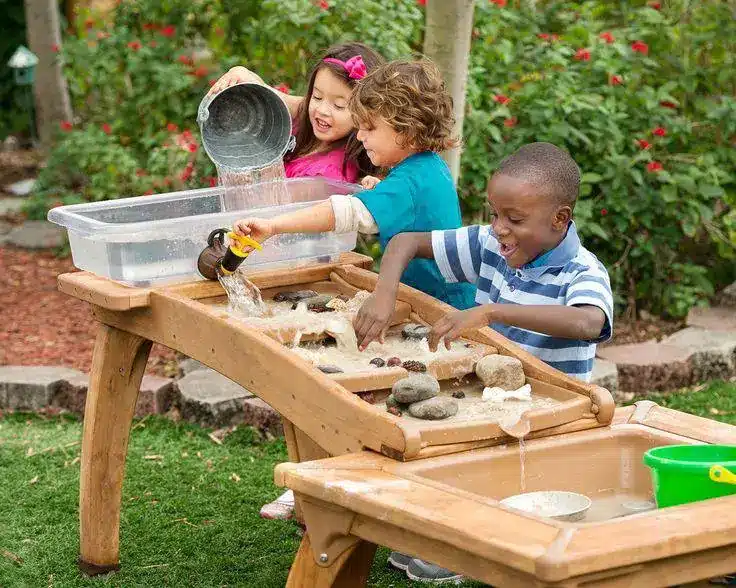
- Gardening Fun
- Materials: Child-sized gardening tools, seeds, watering cans, soil, plant markers.
- Gardening introduces children to the basics of plant life cycles and responsibility as they care for their growing plants.
- Outdoor Art Projects
- Materials: Sidewalk chalk, large paper, washable paints, brushes, natural items for textures.
- Engaging in art projects outdoors allows children to express themselves creatively while enjoying the fresh air and natural light.
- Bubble Blowing
- Materials: Bubble solution, bubble wands, or homemade bubble makers.
- The simple act of blowing bubbles and chasing them is not only captivating but also beneficial for visual tracking and fine motor development.
- Rope Skipping
- Materials: Jump ropes.
- Skipping rope is a fun, active game that improves coordination, rhythm, and physical fitness, perfect for group or solo play.
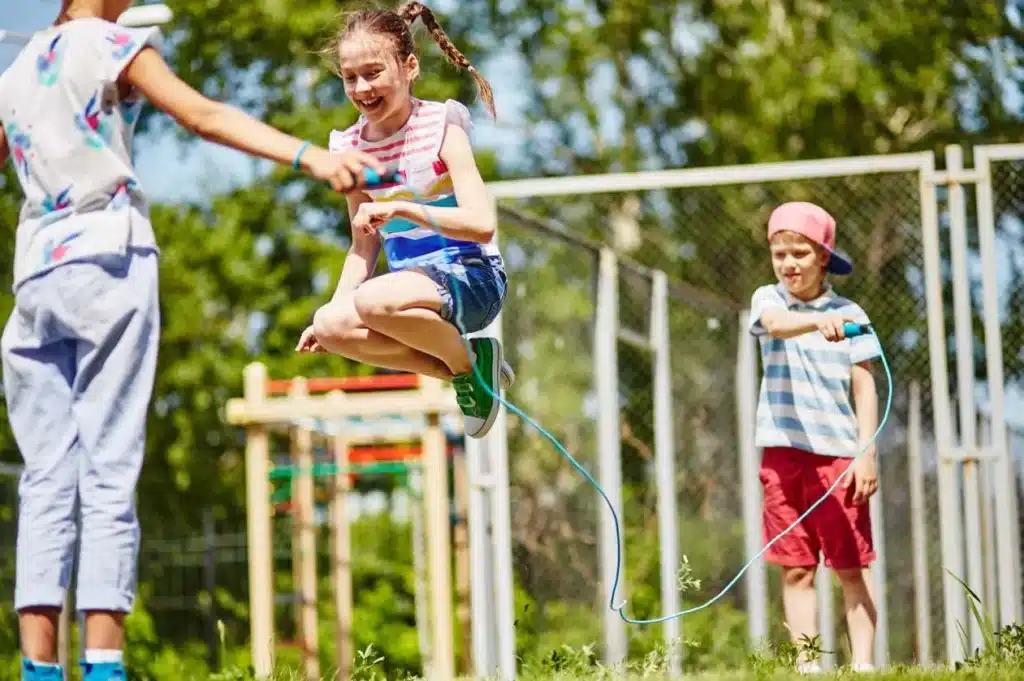
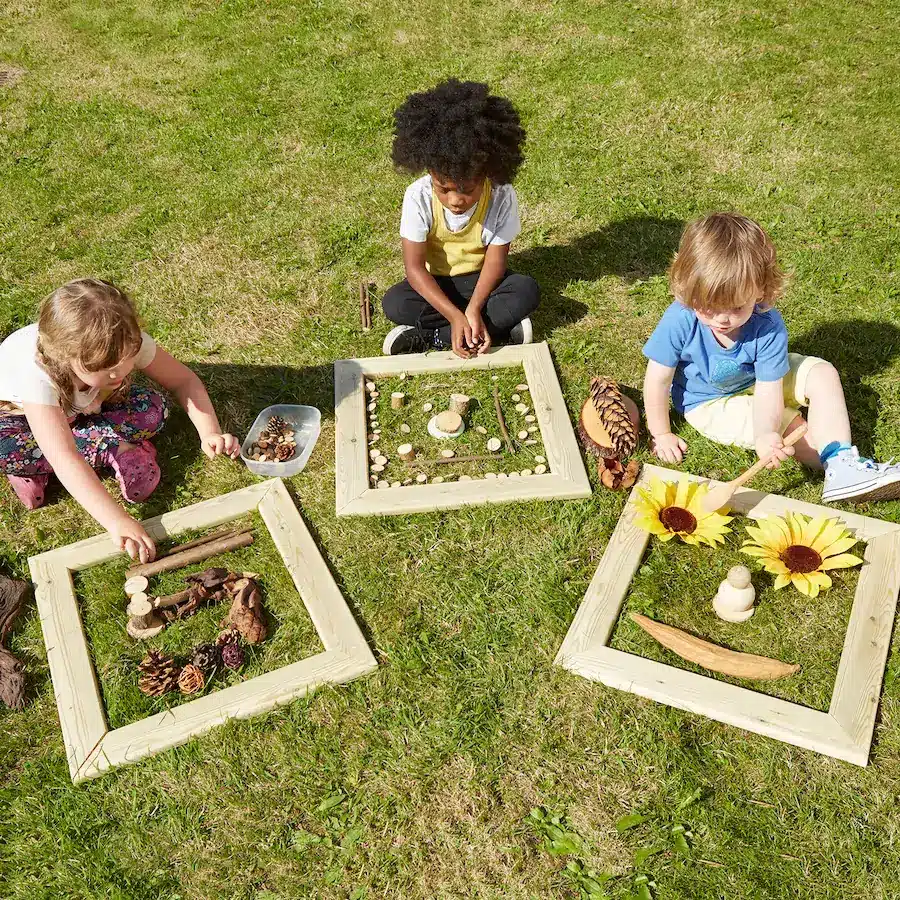
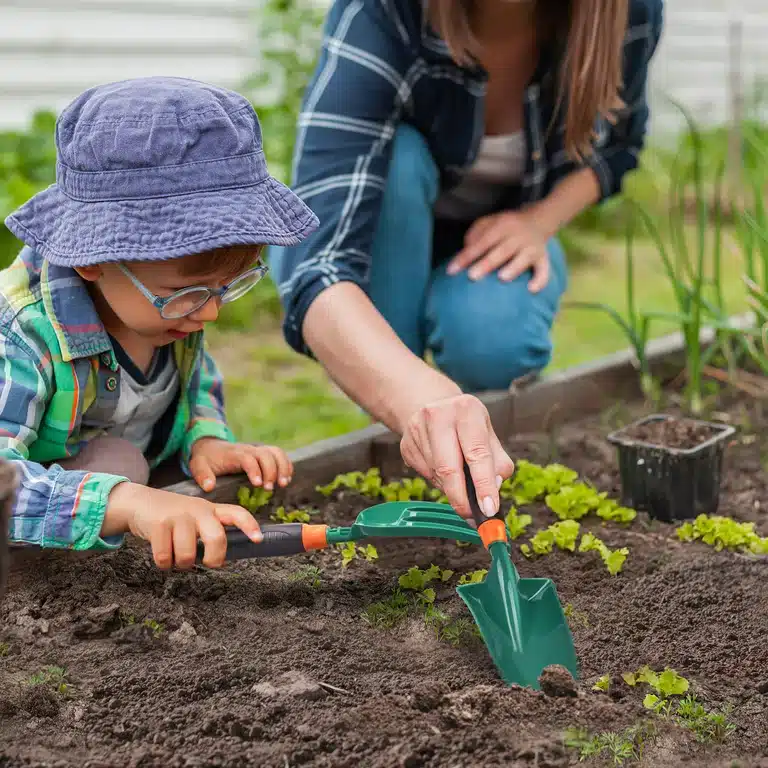
- Treasure Hunts
- Materials: Treasure maps, hidden objects or clues, treasure chest or prize.
- Treasure hunts excite and engage preschoolers, promoting problem-solving skills and teamwork in an adventurous outdoor play setting.
- Picnics with Storytime
- Materials: Blankets, storybooks, picnic snacks.
- Combining picnics with storytime outdoors encourages a love for reading and listening, making for a relaxing and educational experience.
- Animal Yoga
- Materials: None or yoga mats.
- Mimicking animal poses through yoga is a playful way to introduce physical activity, focus, and balance.
- Tag Games
- Materials: None.
- Tag and other chasing games are excellent for promoting physical activity, agility, and social interaction among preschoolers.
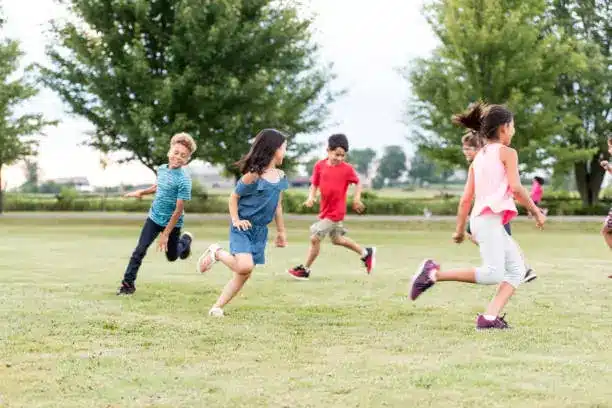
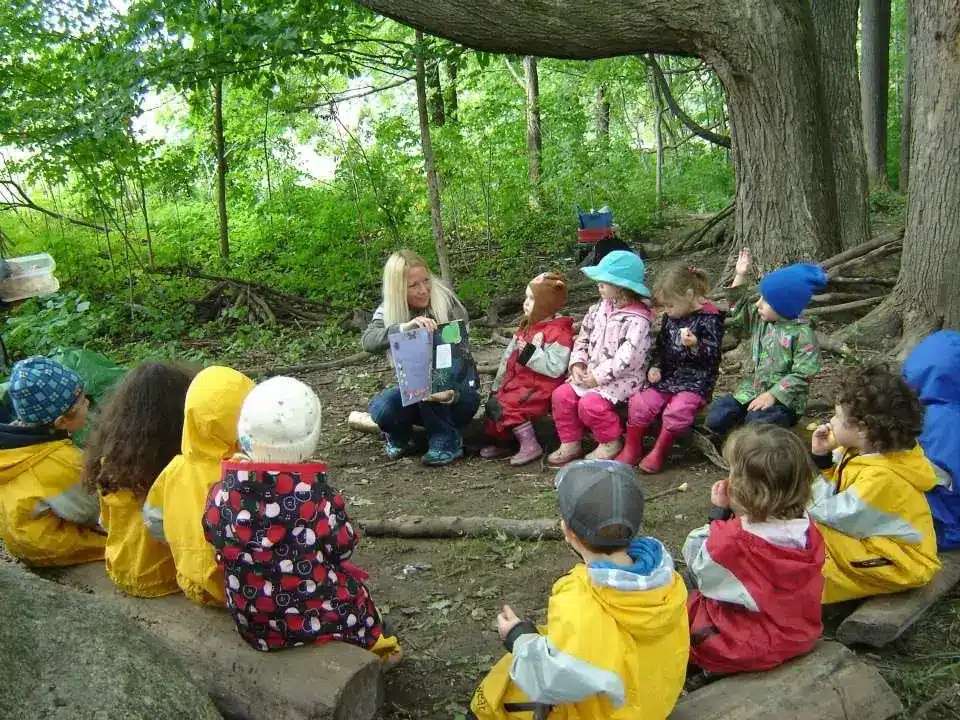
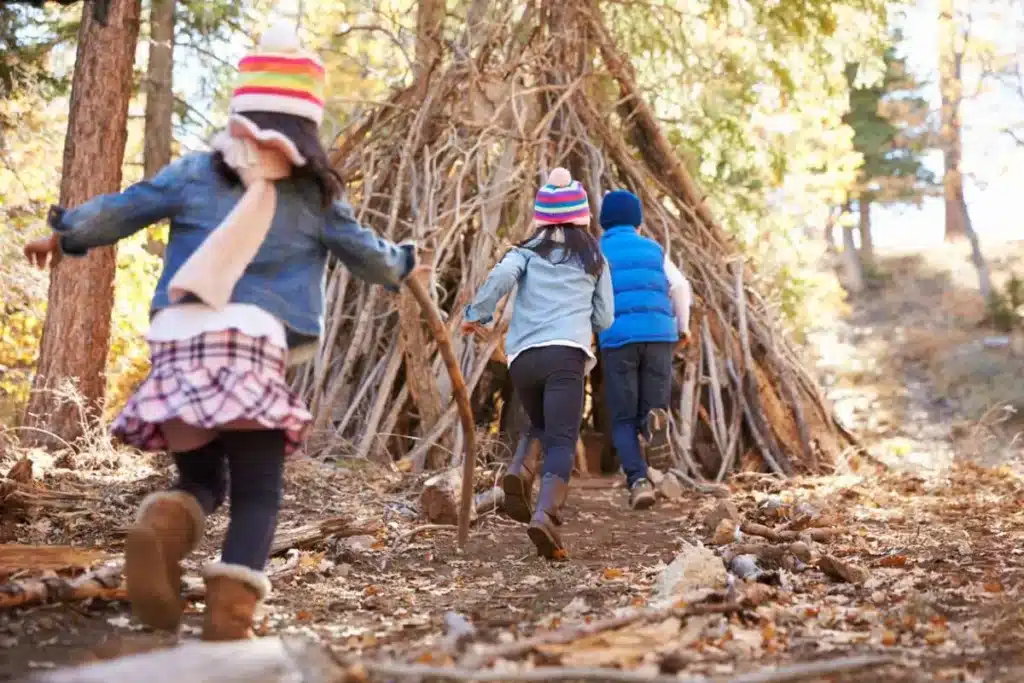
- Hopscotch
- Materials: Sidewalk chalk or hopscotch mat.
- Hopscotch is a timeless game that combines fun, learning (numbers recognition), and physical skill (balance and coordination).
- Mini Sports
- Materials: Mini soccer balls, basketballs, tee-ball set.
- Introducing preschoolers to mini versions of sports can nurture teamwork skills and gross motor development in an outdoor play setting.
- Leaf Collecting
- Materials: Bags or baskets, identification books or charts.
- Collecting different types of leaves can be an engaging way to teach preschoolers about trees and plants, enhancing their observational skills.
- Puddle Jumping
- Materials: Rain boots.
- Puddle jumping after rain showers offers joyous physical play that improves coordination and gross motor skills.

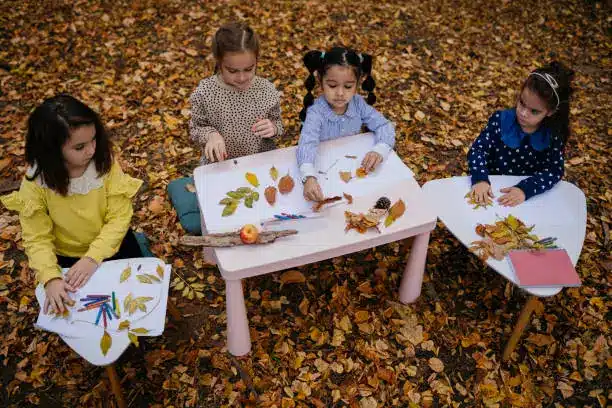
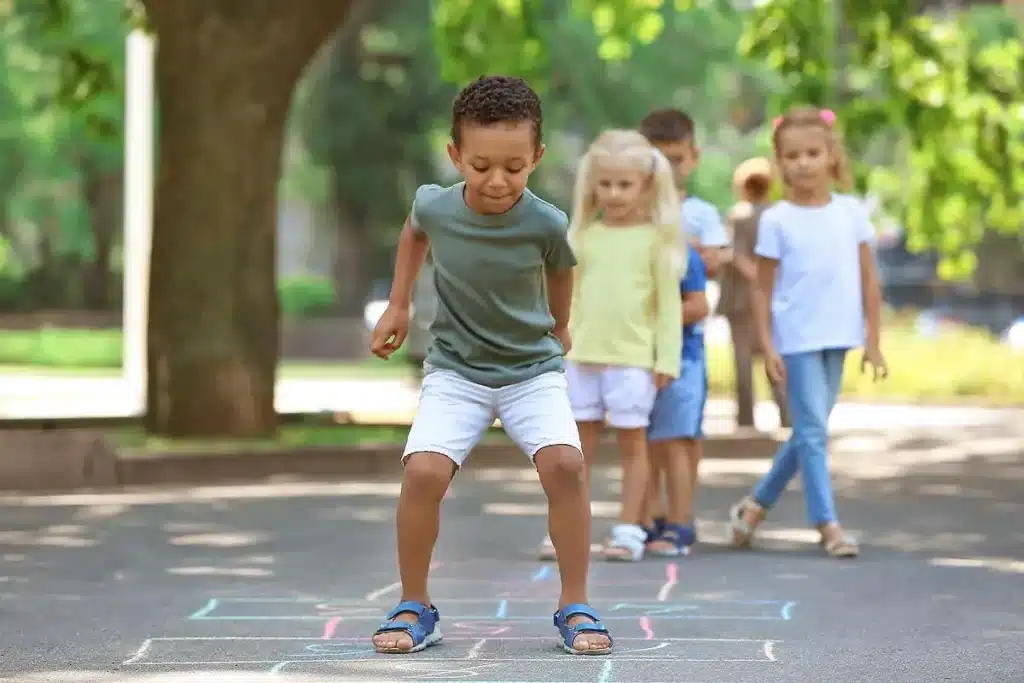
- Outdoor Puppet Shows
- Materials: Puppets, puppet stage (optional).
- Hosting puppet shows outdoors encourages storytelling and imaginative play, with nature providing a beautiful backdrop.
- Climbing Structures
- Materials: Playground climbing structures.
- Climbing activities build strength, confidence, and spatial awareness, making them a thrilling part of preschool outdoor play.
- Musical Parades
- Materials: Homemade or simple musical instruments.
- Leading musical parades allows children to explore sound, rhythm, and movement in a joyous group activity.
- Scavenger Hunts
- Materials: Scavenger hunt lists, pencils, bags for collections.
- Scavenger hunts for natural objects or themed items are a fun way to incorporate problem-solving and critical thinking into outdoor play.
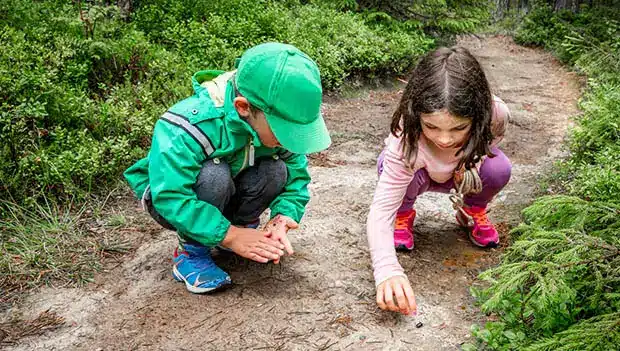
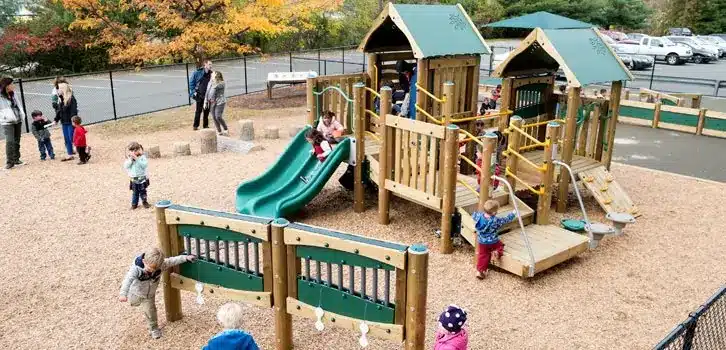
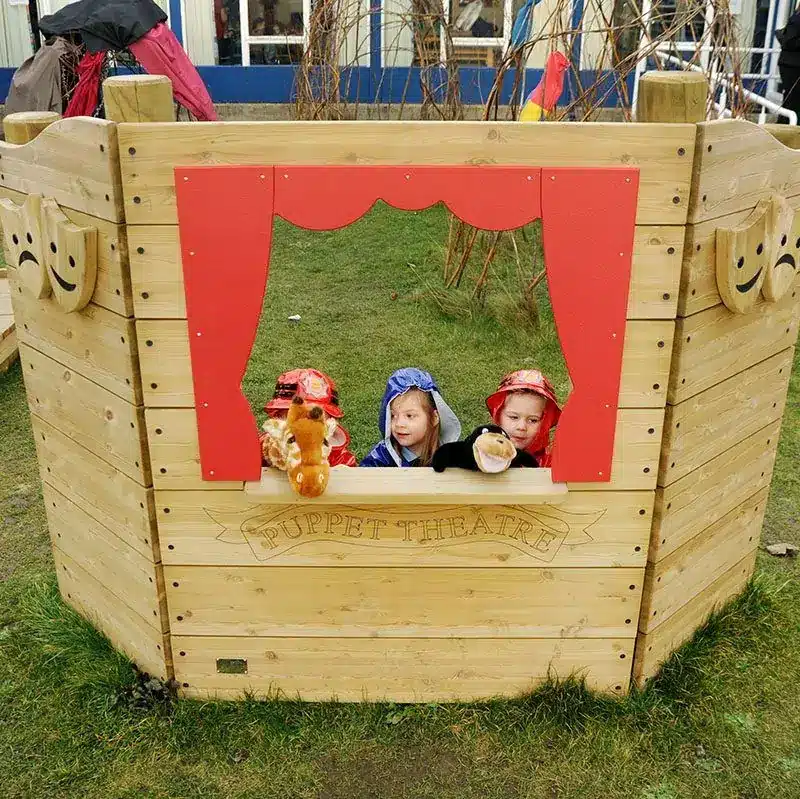
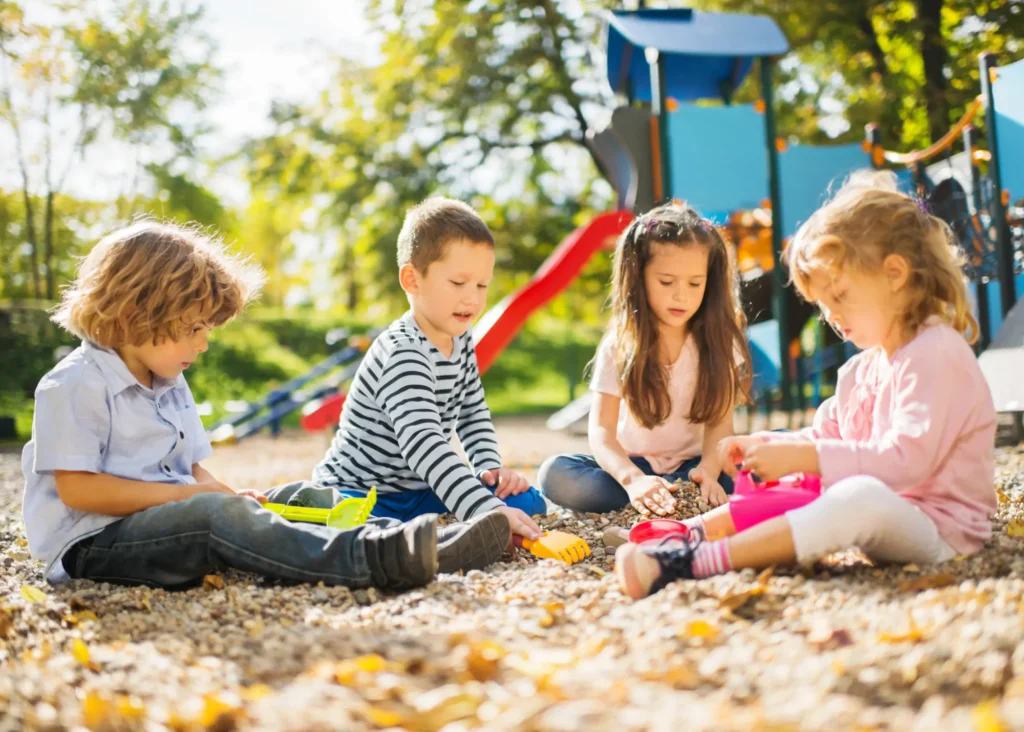
Why Outdoor Play is Essential for Preschoolers’ Healthy Development?
Understanding the profound impact of preschool outdoor play on children’s growth and development is crucial for educators, parents, and caregivers alike. Preschool outdoor play is a fundamental aspect of childhood that goes beyond mere entertainment. It serves as a critical platform for physical, cognitive, emotional, and social development. Engaging in outdoor activities allows preschoolers to explore their environment, embrace their curiosity, and interact with their peers in a natural setting.
Outdoor play in preschool is not just beneficial; it’s essential. It’s where children learn to push their boundaries, develop critical thinking skills, and build resilience in a supportive environment.
Physical Development Through Preschool Outdoor Play
The physical benefits of preschool outdoor play are immense and multifaceted. Engaging in outdoor activities helps children develop their gross motor skills through running, jumping, and climbing. These activities are foundational for physical health, promoting endurance, strength, and flexibility. Regular outdoor play also significantly impacts children’s fine motor skill development as they engage in more delicate activities like picking up leaves, manipulating play equipment, or drawing with sticks in the dirt. This combination of gross and fine motor skill development is crucial for the overall physical growth of preschoolers.
Additionally, outdoor play encourages a healthy lifestyle from an early age, instilling values of exercise and physical activity. The exposure to natural elements like fresh air and sunlight not only enhances physical well-being but also improves vitamin D levels, crucial for bone health and immune system functioning.
Cognitive Development and Preschool Outdoor Play
Preschool outdoor play is a rich source of cognitive stimulation. The natural environment is a vast classroom filled with endless opportunities for exploration, questioning, and discovery. Children learn to observe patterns, solve problems, and think critically as they interact with their surroundings. Outdoor play settings offer varied stimuli that engage children’s senses, fostering cognitive development through sensory play. This sensory engagement helps in developing keen observation skills and a deep understanding of the physical world.
Nature-based learning experiences, such as observing the lifecycle of plants or the behavior of insects, provide practical knowledge and enhance scientific thinking. These experiences are invaluable in nurturing curious, engaged learners who are equipped to tackle complex problems with innovative solutions.
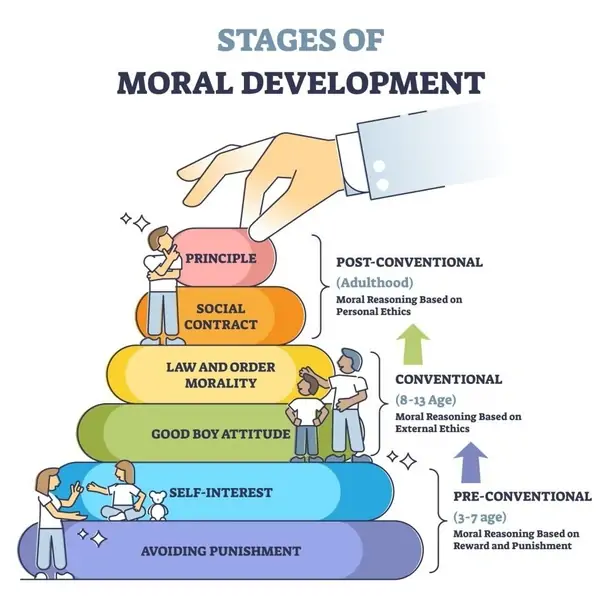
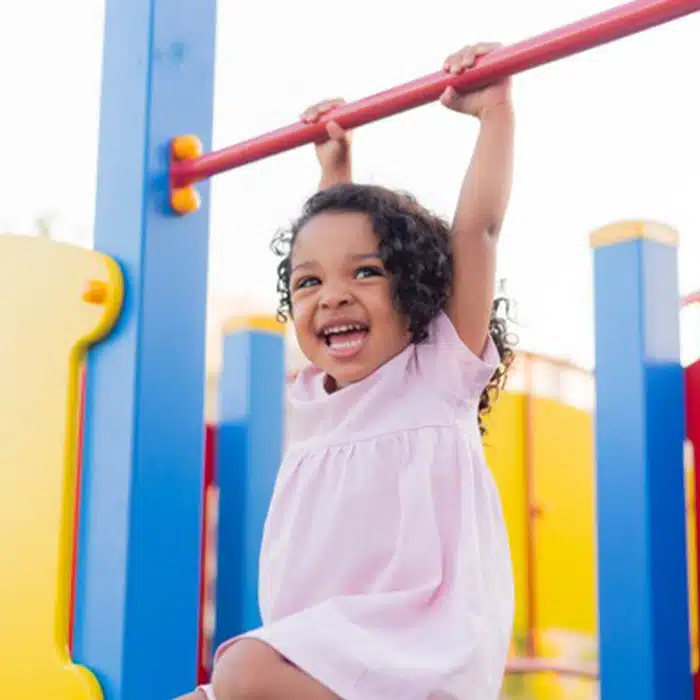
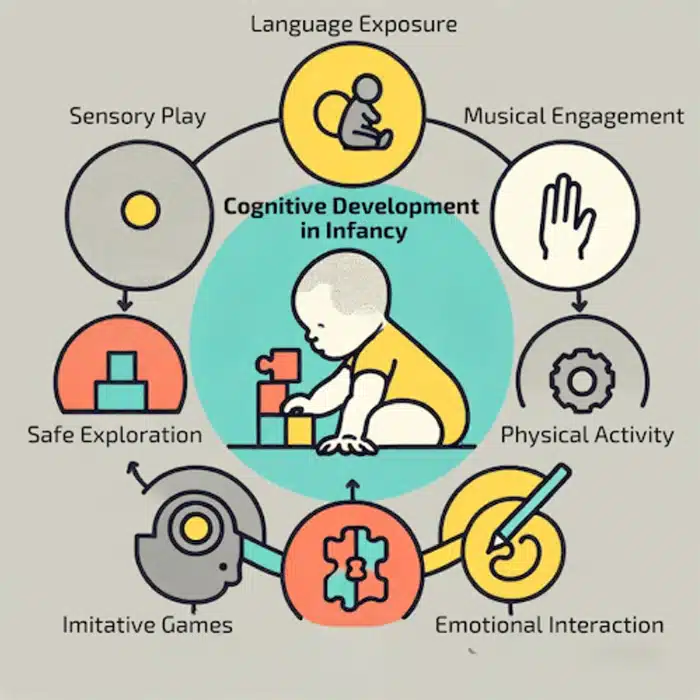
Emotional Well-being Fostered by Outdoor Play
The impact of preschool outdoor play on emotional development is profound. The freedom associated with outdoor play provides a sense of joy and liberation that is hard to replicate in structured indoor environments. This freedom supports emotional regulation, allowing children to express themselves fully and experience a wide range of emotions. Outdoor play also offers children a unique opportunity to overcome challenges and fears, such as the apprehension of climbing a high slide or navigating through a complex obstacle course. Overcoming these challenges fosters a sense of achievement and self-confidence.
Moreover, the calming effect of being in nature reduces stress and promotes a sense of peace and well-being. The emotional resilience built through these experiences is a critical component of healthy psychological development, preparing children to face future challenges with confidence and optimism.
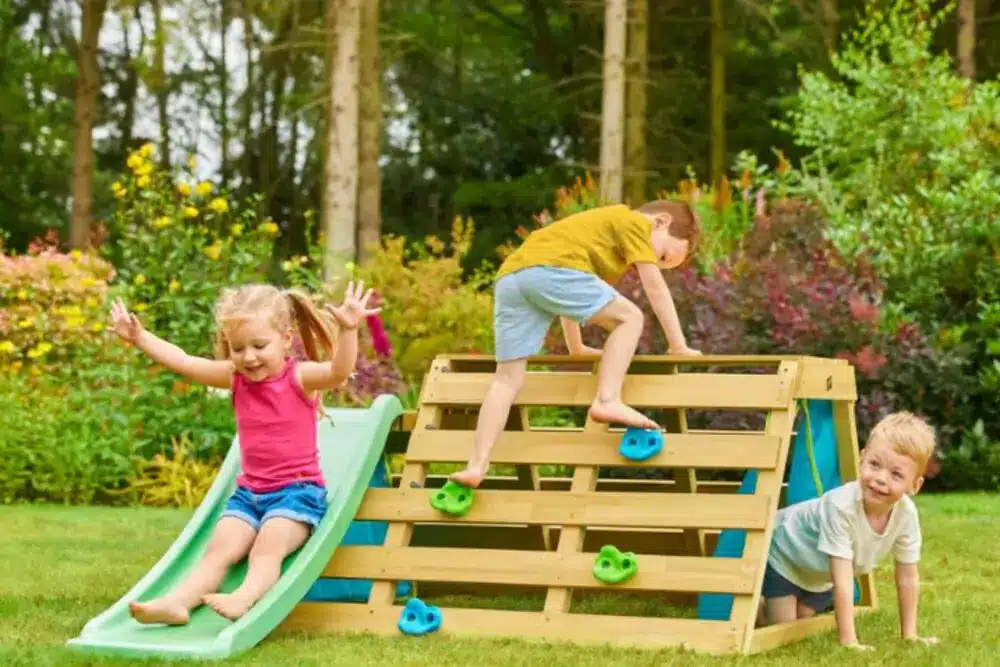
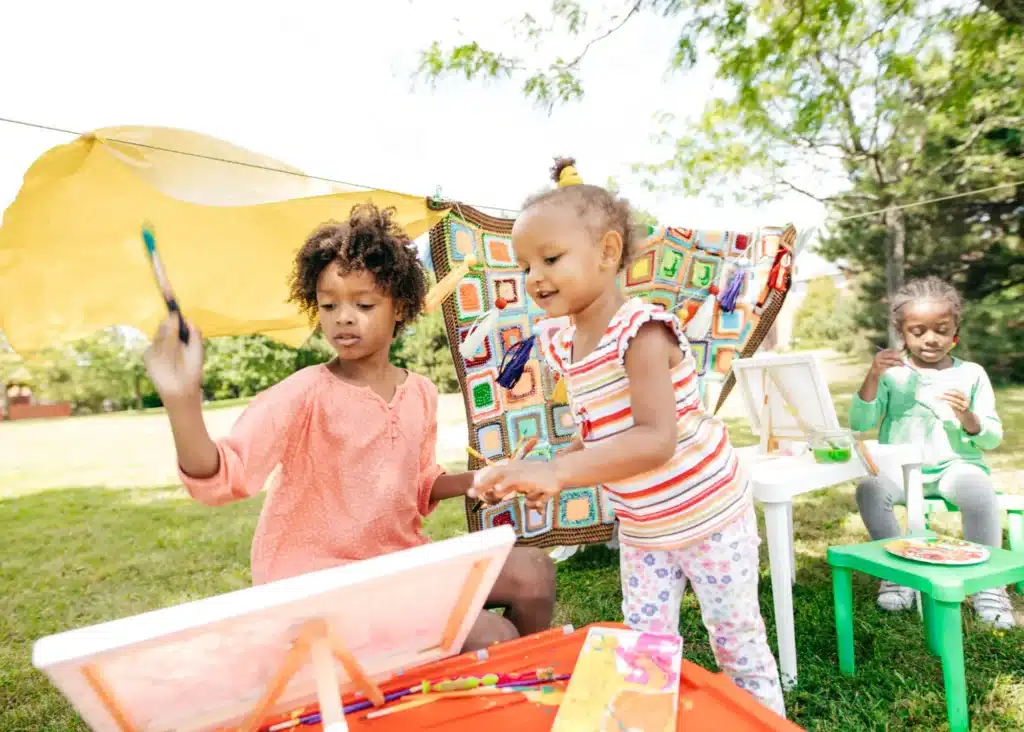
Social Skills and Community Building in Outdoor Play
Preschool outdoor play is invaluable in developing social skills and a sense of community among young children. The playground is a social arena where children learn to negotiate, collaborate, and empathize with their peers. These interactions are critical for developing strong communication skills, understanding social cues, and building friendships. Through play, children learn the importance of teamwork, sharing, and mutual respect, which are essential components of social competence.
Outdoor play also offers opportunities for children to engage in role-playing activities that mimic real-life situations, allowing them to explore different perspectives and develop empathy. These play-based scenarios are crucial for understanding social dynamics and building a foundation for healthy interpersonal relationships.
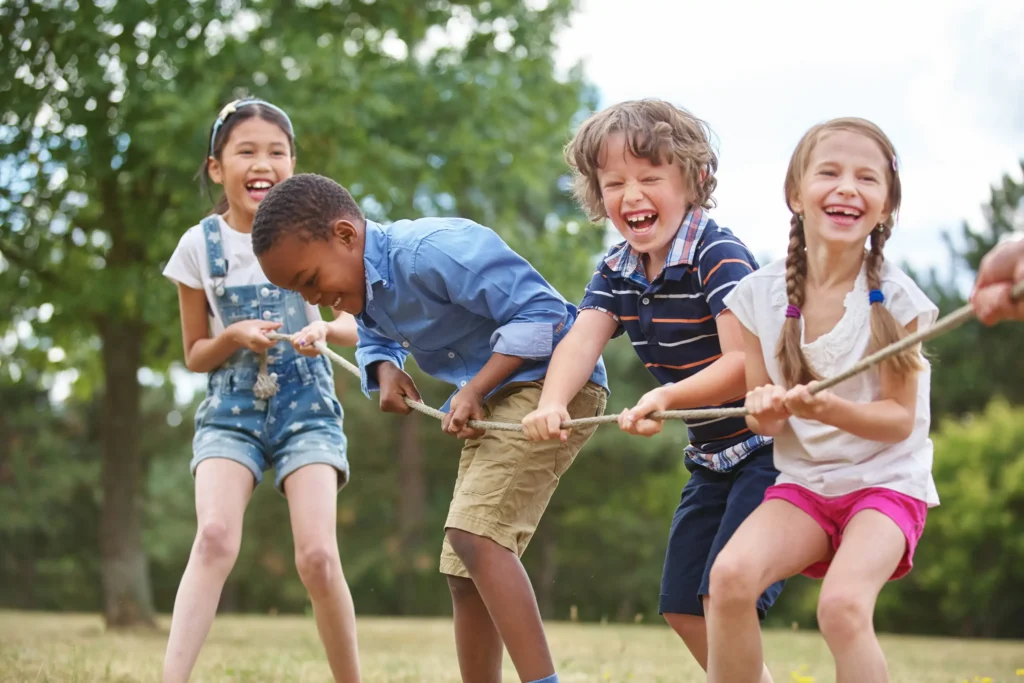
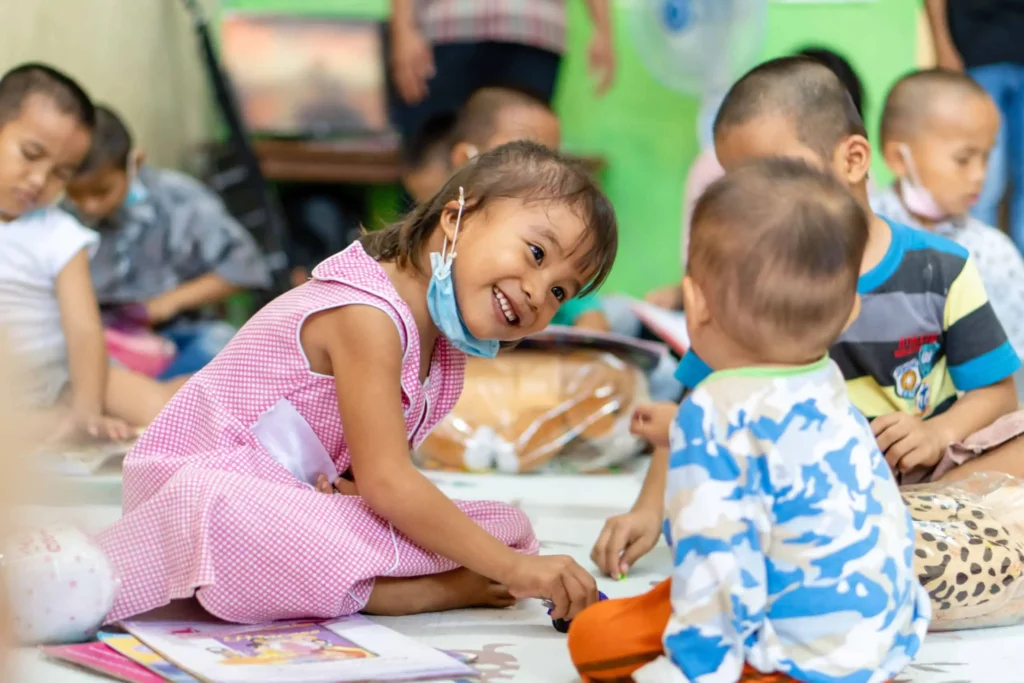
Preschool outdoor play activities are more than just fun; they are a cornerstone of early childhood education. They offer a dynamic environment for physical, cognitive, social, and emotional development. By incorporating diverse and engaging outdoor activities, we can provide children with a strong foundation for lifelong learning and well-being.



